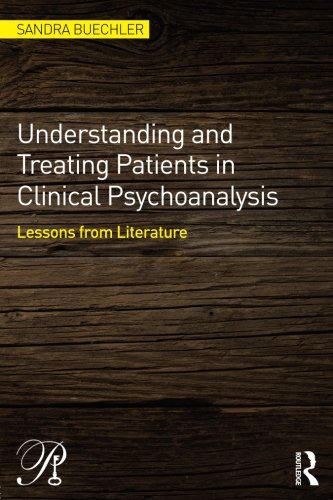

Most ebook files are in PDF format, so you can easily read them using various software such as Foxit Reader or directly on the Google Chrome browser.
Some ebook files are released by publishers in other formats such as .awz, .mobi, .epub, .fb2, etc. You may need to install specific software to read these formats on mobile/PC, such as Calibre.
Please read the tutorial at this link: https://ebookbell.com/faq
We offer FREE conversion to the popular formats you request; however, this may take some time. Therefore, right after payment, please email us, and we will try to provide the service as quickly as possible.
For some exceptional file formats or broken links (if any), please refrain from opening any disputes. Instead, email us first, and we will try to assist within a maximum of 6 hours.
EbookBell Team

0.0
0 reviewsUnderstanding and Treating Patients in Clinical Psychoanalysis: Lessons from Literature describes the problematic ways people learn to cope with life’s fundamental challenges, such as maintaining self-esteem, bearing loss, and growing old. People tend to deal with the challenges of being human in characteristic, repetitive ways. Descriptions of these patterns in diagnostic terms can be at best dry, and at worst confusing, especially for those starting training in any of the clinical disciplines. To try to appeal to a wider audience, this book illustrates each coping pattern using vivid, compelling fiction whose characters express their dilemmas in easily accessible, evocative language. Sandra Buechler uses these examples to show some of the ways we complicate our lives and, through reimagining different scenarios for these characters, she illustrates how clients can achieve greater emotional health and live their lives more productively.
Drawing on the work of Dostoevsky, Tolstoy, Munro, Mann, James, O’Connor, Chopin, McCullers, Carver, and the many other authors represented here, Buechler shows how their keen observational short fiction portrays self-hurtful styles of living. Sheexplores how human beings cope using schizoid, paranoid, grandiose, hysteric, obsessive, and other defensive styles. Each is costly, in many senses, and each limits the possibility for happiness and fulfillment.
Understanding and Treating Patients in Clinical Psychoanalysis offers insights into what living with and working with problematic behaviors really means through a series of examples of the major personality disorders as portrayed in literature. Through these fictitious examples, clinicians and trainees, and undergraduate and graduate students can gain a greater understanding of how someone becomes paranoid, schizoid, narcissistic, obsessive, or depressive, and how that affects them, and those around them, including the mental health professionals who work with them.